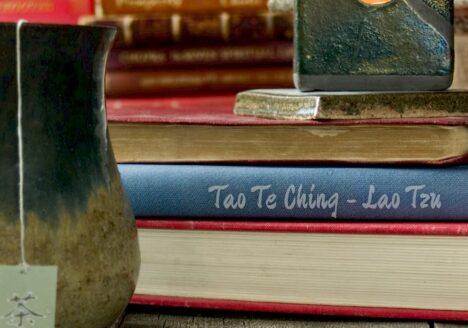Traditional Chinese Medicine (TCM) is a comprehensive and holistic medical system that has evolved over 2,500 years, deeply intertwined with Chinese culture and philosophy. Rooted in the principles of balance and harmony, TCM emphasizes the interconnectedness of the body, mind, and spirit, making it a natural fit for the Self Matrix Framework, which seeks to integrate these dimensions of well-being. By utilizing therapies such as herbal medicine, acupuncture, moxibustion, and qigong, TCM aims to restore balance in the body and promote overall health, preventing disease before it manifests (Xu et al., 2022; Xu et al., 2018; Kaptchuk, 2000).
Definition
TCM is based on the foundational belief that Qi (vital energy) flows through pathways in the body known as meridians. Health is maintained by ensuring that Qi flows freely and in balance. Illness, on the other hand, is thought to arise from imbalances or blockages in Qi. Central to this system are the concepts of yin and yang, representing opposing forces that need to remain in harmony for the body to function optimally (Kaptchuk, 2000).
TCM employs four primary diagnostic techniques to assess a patient’s health comprehensively: observation, auscultation (listening), inquiry (asking questions), and palpation (feeling the pulse). These methods allow TCM practitioners to make a detailed diagnosis that takes into account the unique constitution and condition of the patient, leading to a personalized treatment plan (Tian et al., 2023).
Principles and Concepts
The core principles of TCM align with the Self Matrix focus on the integration of body, mind, and spirit. In TCM, health is viewed as a dynamic balance of these elements, and treatment approaches are designed to address the underlying imbalances rather than just treating symptoms. The Syndrome Differentiation method, which is a hallmark of TCM, emphasizes individualized treatments based on the specific patterns of imbalance identified in the patient (Jiang et al., 2012). This personalized approach ensures that each patient receives a treatment that addresses the root cause of their condition, thus promoting holistic well-being.
TCM treatments include herbal remedies, acupuncture, moxibustion, and qigong, each working to restore balance in different ways. Herbal medicine is used to adjust internal imbalances, while acupuncture and moxibustion target specific meridians to unblock Qi and stimulate healing (Xu et al., 2018). Qigong, a mind-body practice, integrates breath control, meditation, and physical movements to promote the free flow of Qi, enhancing both physical and mental health (Kaptchuk, 2000).
Benefits
The benefits of TCM within the Self Matrix framework extend across the physical, mental, and spiritual domains. By focusing on prevention and personalized care, TCM aims to enhance overall well-being rather than simply addressing illness once it occurs.
- Physical Health: TCM’s emphasis on balance and prevention supports physical vitality. Herbal treatments, acupuncture, and other therapies have been increasingly recognized for their potential in managing chronic and complex diseases, such as cardiovascular disorders and autoimmune conditions (Guo et al., 2022). TCM therapies are integrated into modern healthcare systems, offering a complementary approach to conventional treatments by promoting long-term physical health (Xu et al., 2018).
- Mental Well-being: TCM’s holistic view of health includes mental and emotional balance. By restoring harmony in the flow of Qi, TCM therapies like acupuncture and qigong have been used to alleviate stress, anxiety, and depression. Studies have demonstrated that the practice of TCM not only reduces physical symptoms but also improves mental clarity and emotional stability, contributing to overall mental well-being (Xu et al., 2018; Jiang et al., 2012).
- Spiritual Balance: TCM also nurtures spiritual well-being by promoting harmony between the individual and the natural world. The integration of practices like qigong and meditation fosters a deeper connection between body, mind, and spirit, aligning with the Self Matrix’s goal of achieving holistic balance. In TCM, spiritual health is seen as a crucial aspect of overall well-being, and practices like qigong are designed to cultivate internal peace and mindfulness (Kaptchuk, 2000).
Applications
TCM’s individualized treatment approach is particularly well-suited to the Self Matrix Framework, which emphasizes the unique needs and conditions of each individual. The Syndrome Differentiation approach ensures that TCM treatments are tailored to the patient’s specific imbalances, offering personalized care that addresses the root cause of illness rather than just treating symptoms (Jiang et al., 2012).
In modern healthcare, TCM has found increasing integration as a complementary therapy, particularly for chronic and complex conditions that are not always effectively managed with conventional medicine alone (Xu et al., 2018). Research has demonstrated the efficacy of TCM treatments in managing conditions like cardiovascular diseases and autoimmune disorders, making it a valuable addition to a holistic healthcare regimen (Guo et al., 2022).
Scientific Evidence
The evidence supporting the efficacy of TCM is growing, with randomized clinical trials demonstrating its effectiveness in managing a variety of conditions. For example, Guo et al. (2022) highlight the success of TCM in treating cardiovascular diseases, particularly in improving patient outcomes when used alongside conventional treatments. Similarly, the integration of TCM into healthcare systems, as noted by Xu et al. (2018), underscores the increasing recognition of its value as a complementary therapy.
In addition, the use of artificial intelligence (AI) in the study of TCM diagnostic methods, such as the four diagnostic techniques, is paving the way for more precise and reliable applications of TCM in modern medicine. Tian et al. (2023) report that AI is being utilized to enhance the accuracy of TCM diagnostics, thereby contributing to its evolving role in contemporary healthcare.
How to Get Started
For individuals interested in incorporating TCM into their health routine, it is essential to seek out a qualified practitioner who can perform a comprehensive diagnosis based on TCM principles. Treatments such as acupuncture, herbal medicine, and qigong can be used to maintain balance and prevent disease, making TCM an excellent complement to a wellness routine focused on holistic health.
Regular practice of qigong, for instance, can enhance both physical and mental well-being by promoting the free flow of Qi and fostering mindfulness. Herbal medicine should be used under the guidance of a qualified TCM practitioner to ensure the correct herbs are prescribed based on the individual’s specific condition (Kaptchuk, 2000; Xu et al., 2018).
Conclusion
Traditional Chinese Medicine, with its holistic approach to health, fits naturally within the Self Matrix Framework, which emphasizes the integration of body, mind, and spirit. Through its individualized, syndrome-differentiated treatments, TCM promotes balance and harmony in all aspects of life. As research continues to validate its efficacy, TCM remains a valuable tool for achieving overall well-being, aligning with the Self Matrix’s goals of fostering holistic health and vitality.
References
Guo, X., Chen, X., Chen, J., Tan, Z., Yang, Y., & Zhang, H. (2022). Current status and evaluation of randomized clinical trials of traditional chinese medicine in the treatment of cardiovascular diseases. Evidence-Based Complementary and Alternative Medicine, 2022, 1-13. https://doi.org
Jiang, M., Lü, C., Zhang, C., Yang, J., Tan, Y., Lü, A., … & Chan, K. (2012). Syndrome differentiation in modern research of traditional chinese medicine. Journal of Ethnopharmacology, 140(3), 634-642. https://doi.org
Kaptchuk, T. J. (2000). The Web That Has No Weaver: Understanding Chinese Medicine. McGraw-Hill Education.
Tian, Z., Wang, D., Sun, X., Fan, Y., Guan, Y., Zhang, N., … & Wang, H. (2023). Current status and trends of artificial intelligence research on the four traditional chinese medicine diagnostic methods: a scientometric study. Annals of Translational Medicine, 11(3), 145-145. https://doi.org
Xu, H., Zhang, Y., Liu, Z., Chen, T., Lv, C., Tang, S., … & Huang, L. (2018). Etcm: an encyclopaedia of traditional chinese medicine. Nucleic Acids Research, 47(D1), D976-D982. https://doi.org
Xu, R., Mu, T., Liu, Y., Ye, Y., & Xu, C. (2022). Trends in the disparities and equity of the distribution of traditional chinese medicine health resources in china from 2010 to 2020. Plos One, 17(10), e0275712. https://doi.org




